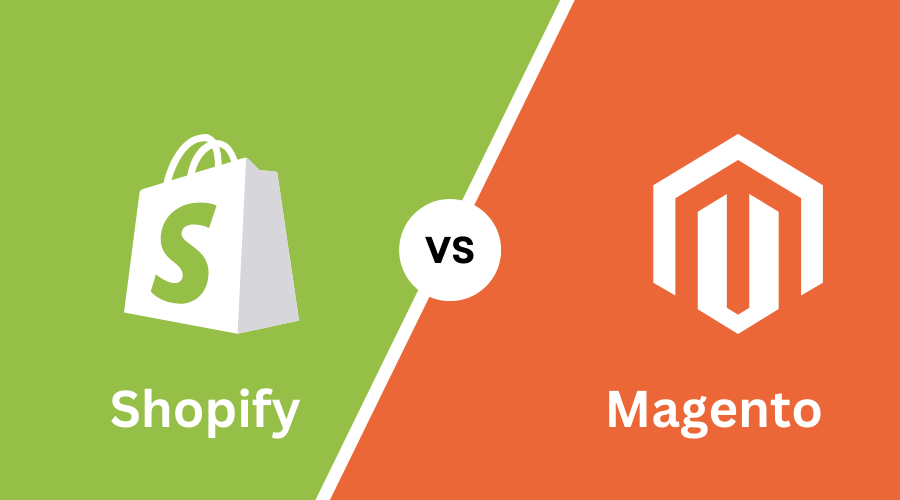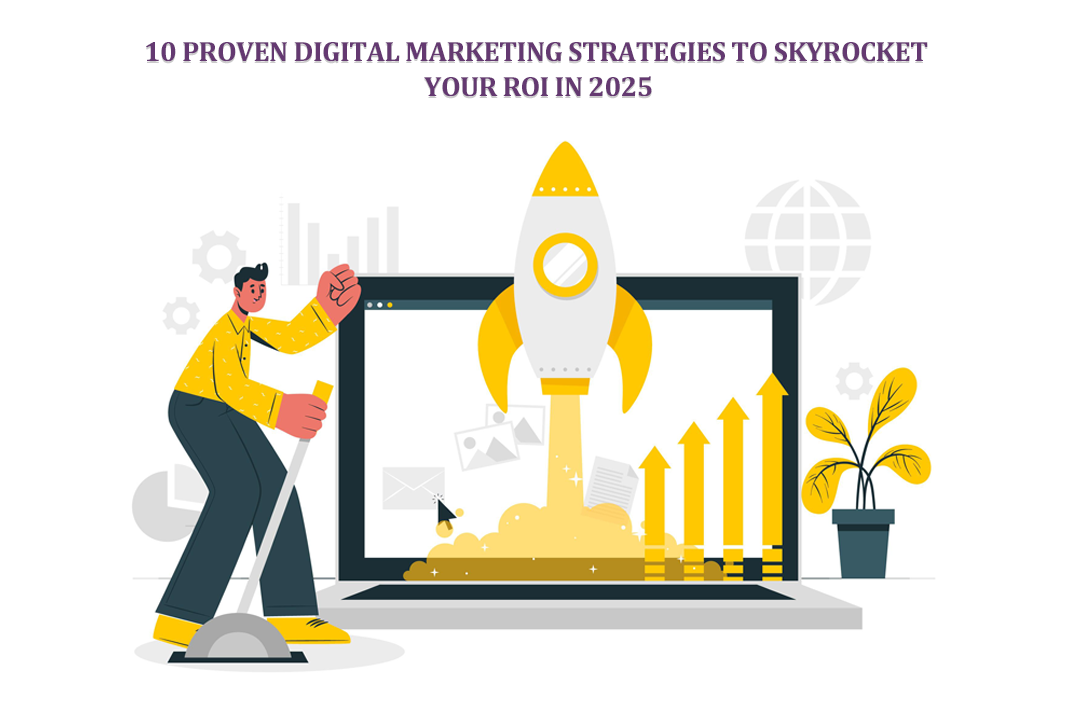Shopify Vs. Magento: Which Is The Best For Your eCommerce Development Services?
If you want to create an online store for your business, there are two best open source platforms, Shopify and Magento, that can help you to create your online eCommerce store. According to Statista, in 2020, over two billion people purchased goods or services online, and during the same year, e-retail sales surpassed 4.2 trillion U.S. dollars worldwide.
Being a business leader, you might have planned to shift your business online but choosing the right eCommerce tool is your primary concern.
This post will help you to choose the best platform to develop your dream eCommerce store in 2022.
Shopify Vs Magento: Which Is The Right Platform For You In 2022?
1) Magento Vs Shopify: Pros and Cons
Shopify is an easy-to-use solution for developing online stores. Business leaders need to pay monthly fees, and it is capable of supporting small to large-scale businesses.
Magento is an open-source platform like WordPress that will be installed on your PC. However, business owners need to pay yearly hosting prices, security, extension, and many more.
Let us talk about the Pros and Cons of both platforms.
Shopify Pros:
- It is a multi-channel selling platform.
- It has more than 70+ mobile-friendly themes.
- It has an app store where you can find multiple ranges of apps to enhance the functionality of your site.
Shopify Cons:
- Other than the app, you have to pay the transaction fees.
- Many apps are paid for and can make your development cost expensive.
Magento Pros:
- Magento has a large user community.
- It is a very flexible platform, and there is no such restriction. You can design your site according to your requirement.
- It is an ideal platform for both medium and large-scale businesses.
Magento Cons:
- It is an unsuitable platform for beginners as you must know to code, and the web developer jargon is not suitable for beginners.
- Unlike other open-source platforms, Magento is not easy to install.
2) Usage
When we talk about usage, Shopify is easier than Magento. It is just a drag-and-drop website builder. You can easily drag and drop different elements and customize your online store the way you want.
In Magento, you have to integrate jargon and write code to develop your online eCommerce store. Thus, to use Magento, you must hire an eCommerce development company.
3) Themes
There is an essential element that your users will see when they land on your website. Thus, it should be engaging and responsive.
Shopify has a broader range of themes than Magento. Most of the themes are free and responsive. You don’t have to edit or code, as these themes are well-optimized and ready to use.
When it comes to Magento, they are a bit expensive. They are mobile-friendly, and you need to code to customize the theme according to your requirement.
The average cost for Shopify themes varies between $200-$500, whereas Magento themes cost varies between $1000-$2500.
4) Sales Tool
When we talk about sales tool, it goes hand-to-hand with your eCommerce store. You can’t have one without the other. To make it more clear, let us dive into the features of both platforms and decide which one can be the best.
Shopify Features:
- Abandoned cart recovery
- Multi-channel selling
- Sell your products digitally
- Well-renowned partners like DHL Express, UPS, Canada Post, etc.
Magento Features:
- Multi-channel selling options
- Checkout Customization
- Set percentage and fixed price discounts
5) Marketing Features
Shopify has a brilliant marketing tool package that includes the ability to run email campaigns through third-party implementation like Constant Contact, Klaviyo, Segundo, and many others. You can take help from social media platforms to sell your products on Facebook, Instagram, and Pinterest.
On the other hand, Magento depends on its marketplace for the bulk of its marketing tool. You need to install different extensions to run email campaigns or perform any other activities.
6) Payment Processors and Transaction Fees
Integrating payment processors into your online stores helps you to accept online payments. Thanks to both the platforms, Shopify and Magento, for making their process easy to add payment processors in just a few clicks. Shopify Payments is its own payment processor for accepting online payments with zero processing fees. The transaction fees are divided into three sections; Shopify Basic, Shopify, and Shopify Advance, where the costs vary between 2.4%-3.0% plus 30 per transaction.
When we talk about Shopify and Magento payment gateways, Shopify supports over 100+ payment gateways, and Magento supports over 150+ different payment gateways. The cost of these payment gateways varies depending on their features.
7) Search Engine Optimization (SEO)
SEO helps you gain more visitors to your site by ranking it in different search engines. When we talk about both platforms, Magento wins the race over Shopify when it comes to optimizing your site well. Magento has a wide range of SEO features, such as SEO prompts, and the URL can be customized according to the requirements.
But with Shopify, you have to install different plugins and apps to optimize your site. Thus, in terms of SEO, Magento wins the race.
8) Help & Support
Both with Shopify and Magento platforms, you get good help and support from their team. The offering includes:
- 24*7 Call Support
- Social Media Support
- Community form
- Email Support
- Help Centres
- Video Tutorials
- Live experts
9) Pricing
When it comes to pricing, both platforms have three plans according to features and functionality.
Shopify Pricing:
- The basic plan starts at $30/month
- The Shopify plan starts at $80/month
- The advance plan starts at $300/month.
Magento Pricing:
- The startup plan starts at $10/month.
- Grow Big plan starts at $20/month.
- GoGeek plan starts at $30/month.
10) Shopify vs Magento: Summary
To know which platforms suit best for you, let us quickly recall the significant difference between them:
Why Choose Shopify?
- You want to fix things and run your store fast and quickly.
- You have been using past website builders like Wix, Weebly, etc.
- You are just a startup and starting your first eCommerce store online.
Why Choose Magento?
- You are handling mid-level to large-scale business.
- You know to code and want to customize things according to your own requirements with full-fledged features.
- You have already covered the global audience
- You want to make your business a brand and are ready to invest in designing and making the best store.
Conclusion
As you see in the market, online stores have a huge demand. Many businesses have already planned to move their traditional shop to an online eCommerce store to target a broader audience base and promote their product and services globally.
Being a business leader, if you plan to develop a site with Shopify or Magento, you can avail of eCommerce development services, build your dream site, and expand your business growth.
Essential Tools for Enhancing Web Design and UX Hosting
Have you ever visited a website that felt slow, clunky, or confusing? A website that is poorly…
0 Comments11 Minutes
How a Mini Cart Transformed My Store’s Shopping Experience
Okay, real talk—running an online store is hard. You think you’ve got everything figured out, you…
0 Comments9 Minutes
Balancing Your Security Initiatives With Industry Compliance Requirements
Managing a business today comes with a number of daily battles that need to be fought. Resources…
0 Comments11 Minutes
Best plugins to enhance the customer shopping experience
Customer experience is a key part of every online store. A good experience helps customers find…
0 Comments7 Minutes
AI Content Generating Tools: Is It A Collaboration or Competition For Content Creators?
Artificial Intelligence (AI) has created waves in content creation in business verticals. From…
0 Comments13 Minutes
How to boost user engagement and conversion in WooCommerce?
One thing that is not changing today or in the coming future is the impact user engagement has on…
0 Comments9 Minutes
10 Proven Digital Marketing Strategies to Skyrocket Your ROI in 2025
Why do some companies have a more robust online presence than others? Marketers know very well…
0 Comments12 Minutes
Why Is Woocommerce Suitable For Small Businesses?
Are you finding yourself more confused than usual when choosing your online business’s platform?…
0 Comments8 Minutes








